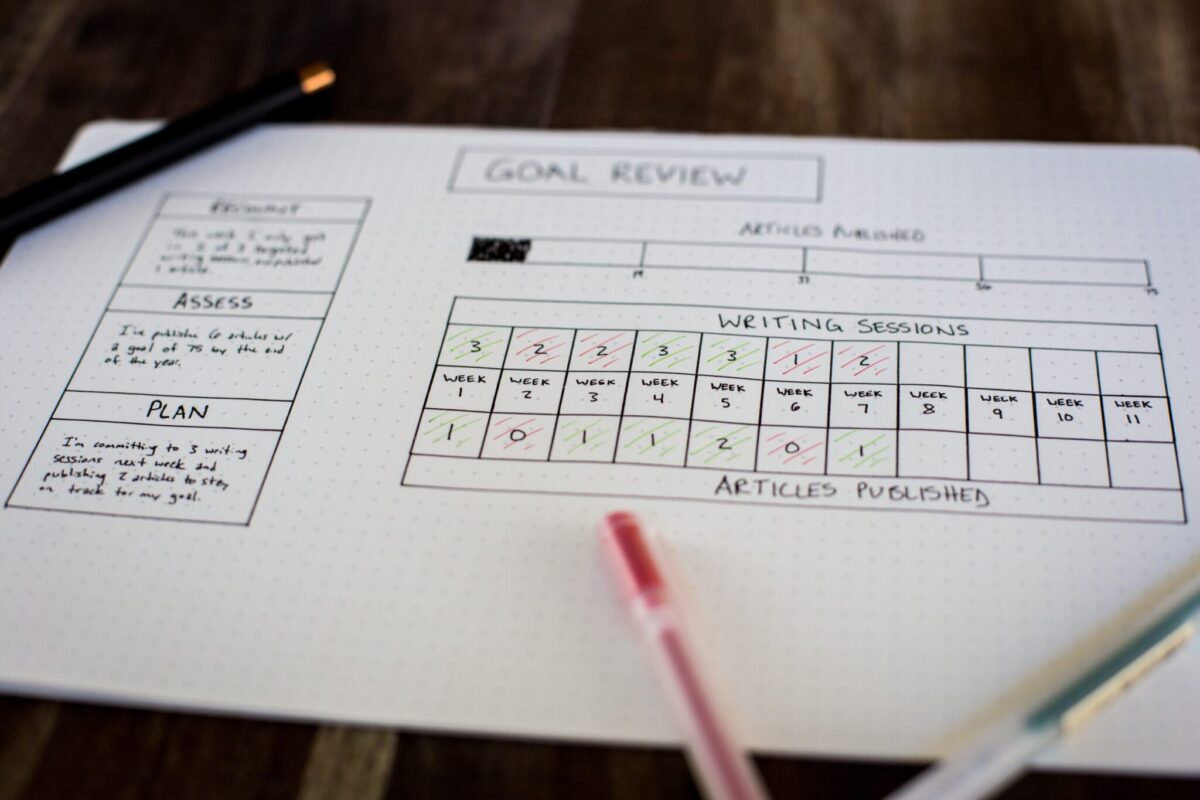
This post may contain affiliate links. For more information, read the full disclosure here.
Living life to the fullest means setting goals for yourself and striving to become the best version of yourself. While this may seem daunting initially, it is achievable if you have the right strategies and tips.
While some might consider switching from an Aston Martin to Ferrari an improvement, others are content with small changes like losing a couple of pounds or saving $200 per month. Long story short, the sense of improvement is highly personal, as everyone has a different idea of betterment. Self-improvement can be defined as “changes that make you feel happy.”
This article will explore ten goal setting techniques and turning them into reality. From understanding the importance of goals to breaking them down into manageable chunks, these tips will help you on your journey to success.
Understanding The Importance Of Goals
Goals are essential because they give us something to strive for and a clear path to achieving them. Goals allow us to measure our progress and remain motivated to reach our desired outcomes.
Goals can be short-term or long-term, but it’s essential to set goals for yourself that are achievable and realistic. Setting too ambitious goals can be disheartening and cause you to give up.
Establishing a plan of action and breaking down your goals into manageable chunks are essential components of goal setting.
10 Goal Setting Techniques
One of the worst things a person can do to themselves is to stop improving. Self-improvement and the power of imagination are critical factors that allow people to be who they are.
Improvement does not happen overnight; it is a time-consuming process, which is why you need a complete plan to achieve whatever you desire.

Identifying Your Goals
Identifying your goals is the first step to achieving them. Ask yourself what it is you want to achieve and why. It’s essential to be clear and specific about what your goals are.
Brainstorming your potential goals and writing down the crucial points that come to mind are very helpful in the process of setting goals. Make sure to write down the finest details and sketch a portrait with words while doing so, as this will help you narrow down your desires.
Once you’ve identified your goals, you can break them down into smaller, more manageable tasks. This will make it easier for you to stay focused and on track.
Making Your Goals Measurable
After sorting out the details of what you want to achieve, you need to figure out a plan that will lead you through your journey. While constructing this plan, consider it a base for an upcoming foundation. Try not to rush this process, as your journey will depend on this plan.
Making your goals measurable will help you keep track of your progress and stay motivated. Be sure to make your goals measurable, including a timeline and specific milestones you want to reach. This will help you stay focused and on track with your goals.
Another thing to note while making your plan is that you shouldn’t try copying someone else, as everyone has their own rules, limits, and capabilities. Try to customize the plan according to your timing and work slowly through it.
When it comes to setting goals, it is essential to be clear about what you want. Vague goals will only lead to frustration and disappointment. Be specific about what you want to achieve and put a plan in place to make it happen.
Set SMART Goals
SMART goals are a powerful tool to help you set and reach your goals. SMART stands for Specific, Measurable, Attainable, Relevant, and Time-bound. Focusing on these five elements when setting goals can create actionable steps more likely to lead to success.
Specific goals are clear, unambiguous, and contain all the necessary information. When making a goal, ask yourself who, what, when, where, why, and how to ensure your goal is specific.
- Measurable goals are goals that you can track and measure your progress. This means including measurable results or benchmarks in your goals.
- Attainable goals are realistic and achievable. They should be challenging but not impossible.
- Relevant goals are goals that are important to you. They should be aligned with your long-term goals and appropriate for your life and situation.
- Time-bound goals have a set timeline with a beginning and an end. This will help you stay on track and ensure that you are making progress toward your goal.
By following the SMART goals process, you can ensure that your goals are clear and achievable.
Breaking Down Your Goals Into Action Steps
Breaking down your goals into action steps is essential for reaching your desired outcomes. Start by breaking down your goals into smaller, more manageable tasks. This will help you stay focused and motivated as you reach your goals.
Setting Deadlines
Setting deadlines for yourself is a great way to stay motivated and on track with your goals. A deadline will push you to stay focused and finish each task on time. Be sure to set realistic deadlines that you can actually achieve.
Tracking Your Progress
Tracking your progress is key to staying motivated and on track with your goals. Create a system that allows you to track your progress and measure your success. This could be a spreadsheet, a website, or any other tool that helps you to measure your progress.
Making Adjustments
Making adjustments to your goals is essential if you want to reach them. It might be time to adjust your plans if your goals aren’t realistic or you’re not making progress. This could involve setting new deadlines or revising your action steps.
Celebrating Your Successes
Celebrating your successes is essential for staying motivated and on track with your goals. Celebrating your wins will help you stay motivated and remind you why you set these goals in the first place.
Staying Motivated
Staying motivated is essential for reaching your goals. This could mean setting aside time each week to focus on your goals or finding a friend or family member to keep you accountable. It could also mean rewarding yourself for reaching certain milestones or taking a break when needed.

Creative Ways To Approach Goal Setting
If you are starting, you should try to start with small goals and try to work your way up. Imposing strict goals from the day you start and forcing yourself too much might end you all exhausted. Time-to-time growth and improvements will give you a sense of contentment, and small wins will also boost confidence.
While the methods I mentioned already work great, you may want to add even more ways to your list to ensure you’re hitting those goals. The following techniques focus on your mindset while reaching your goals and come in handy when you might lose motivation somewhere in the process.
Mindful Meditation
Meditation is known to help deal with a plethora of different problems, like improving concentration and reducing anxiety and depression. Even if you only get 5 minutes of free time, try to spend them on meditation. This will allow you to capture the thoughts you had all day and sort them out.
Meditation also helps people focus on positive thoughts, which also helps in boosting productivity, creativity, mental capacity, and accuracy. Here are seven proven ways meditation can prepare you for success.
Use Visualization Techniques
Manifestation could be very helpful if you need some help with visualizing your goals. This trick will give you a perfect picture of your dream state and help you plan accordingly.
Whatever your plan is, write or print it down and place it somewhere in your room where it will catch your attention. You can also grab a drawing board and draw your desired outcome if you are artistic enough.
Either way, make sure to put your vision board where you can see it daily. You can also have multiple copies of it and stick them in places you go to often, like your bathroom, closet, office cabin, or personal drawer.
Designate An Accountability Partner
You may need to have a motivating force other than yourself during your journey. You can tag along a buddy with similar interests, make him/her/them your accountability partner, and have him/her/them monitor your stats and help you through your journey.
An accountability friend will also help you boost confidence when you feel like giving up. If the goals you set for the start were low, your partner could help you push your limits.
Conclusion On Tips For Setting Goals
Setting goals for yourself is an essential part of living your best life. By understanding the importance of goals, identifying them, making them measurable, breaking them down into action steps, setting deadlines, tracking your progress, making adjustments, celebrating your successes, and staying motivated, you can turn your goals into reality.
